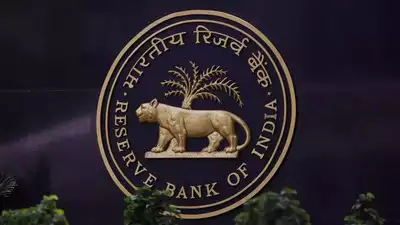In a significant move towards modernization, the Reserve Bank of India (RBI) is set to introduce new features to its digital currency, marking a pivotal step in enhancing its functionality and accessibility. These updates promise to revolutionize the landscape of digital transactions, paving the way for a more inclusive and secure financial ecosystem in India.
Reserve bank of India Enhancements Unveiled
The forthcoming upgrades to RBI’s digital currency are poised to redefine the capabilities of digital transactions. With a focus on versatility and convenience, the central bank is introducing programmability and offline functionality. This transformative step empowers users to tailor digital currency for specific purposes, beyond conventional peer-to-peer payments, thereby amplifying its utility manifold.
Breaking Barriers: Accessibility for All
A groundbreaking aspect of the revamped digital currency is its offline compatibility, addressing a longstanding challenge faced by individuals residing in remote areas or areas with poor internet connectivity. By enabling transactions without the need for a constant internet connection, RBI’s initiative extends the reach of digital financial services to the farthest corners of the nation, ensuring financial inclusion for all.
Empowering Rural India
The offline feature holds immense significance for rural communities, where access to stable internet remains elusive. In these regions, where traditional banking infrastructure is scarce, the ability to conduct digital transactions offline heralds a new era of financial empowerment. Farmers, artisans, and small businesses can now seamlessly engage in digital commerce, transcending geographical barriers and unlocking economic opportunities.
Continued Commitment to Security
In tandem with enhancing accessibility, the RBI remains steadfast in fortifying the security measures surrounding digital transactions. Vigilant efforts are underway to bolster the safety protocols, ensuring that every transaction is shielded from potential threats. By fostering trust and reliability, these initiatives instill confidence in the digital currency ecosystem, propelling its widespread adoption.
Taxation Reforms: Fueling Economic Growth
Beyond facilitating transactions, the RBI is proactively addressing the taxation framework governing digital goods. Recognizing the burgeoning digital marketplace, the central bank seeks to modernize taxation policies to capture revenue from digital products such as applications and games. This strategic move not only augments government revenue but also bolsters India’s competitiveness in the global digital economy.
A Catalyst for Inclusive Growth
The multifaceted enhancements to RBI’s digital currency underscore India’s unwavering commitment to fostering inclusive economic growth. Beyond the realm of financial transactions, these initiatives signify a broader vision to democratize access to financial services and catalyze socioeconomic development across all strata of society. By harnessing the power of digital innovation, India is poised to chart a path towards a more equitable and prosperous future.
Conclusion
The Reserve Bank of India’s endeavor to enhance its digital currency marks a pivotal juncture in India’s digital transformation journey. With a focus on innovation, accessibility, and security, these updates not only streamline digital transactions but also lay the groundwork for a more inclusive and resilient financial ecosystem. As India embraces the digital frontier, the RBI’s proactive measures herald a new era of financial empowerment and economic prosperity for all.
FAQs
- Will the offline feature of RBI’s digital currency work everywhere in India?The offline feature is designed to function in areas with limited or no internet connectivity, ensuring accessibility across diverse regions of India.
- How will the programmability of the digital rupee benefit users?Programmability enables users to customize digital currency for specific purposes, enhancing its utility beyond traditional payment transactions.
- What steps is the RBI taking to ensure the security of digital transactions?The RBI is implementing robust security measures to safeguard digital transactions, including encryption protocols and fraud detection mechanisms.
- How will the taxation reforms impact India’s digital economy?Taxation reforms aim to capture revenue from digital goods, contributing to government coffers and bolstering India’s competitiveness in the global digital marketplace.
- What is the significance of RBI’s digital currency updates for rural communities?The updates, particularly the offline feature, empower rural communities by providing access to digital financial services, thereby fostering economic growth and inclusivity.


